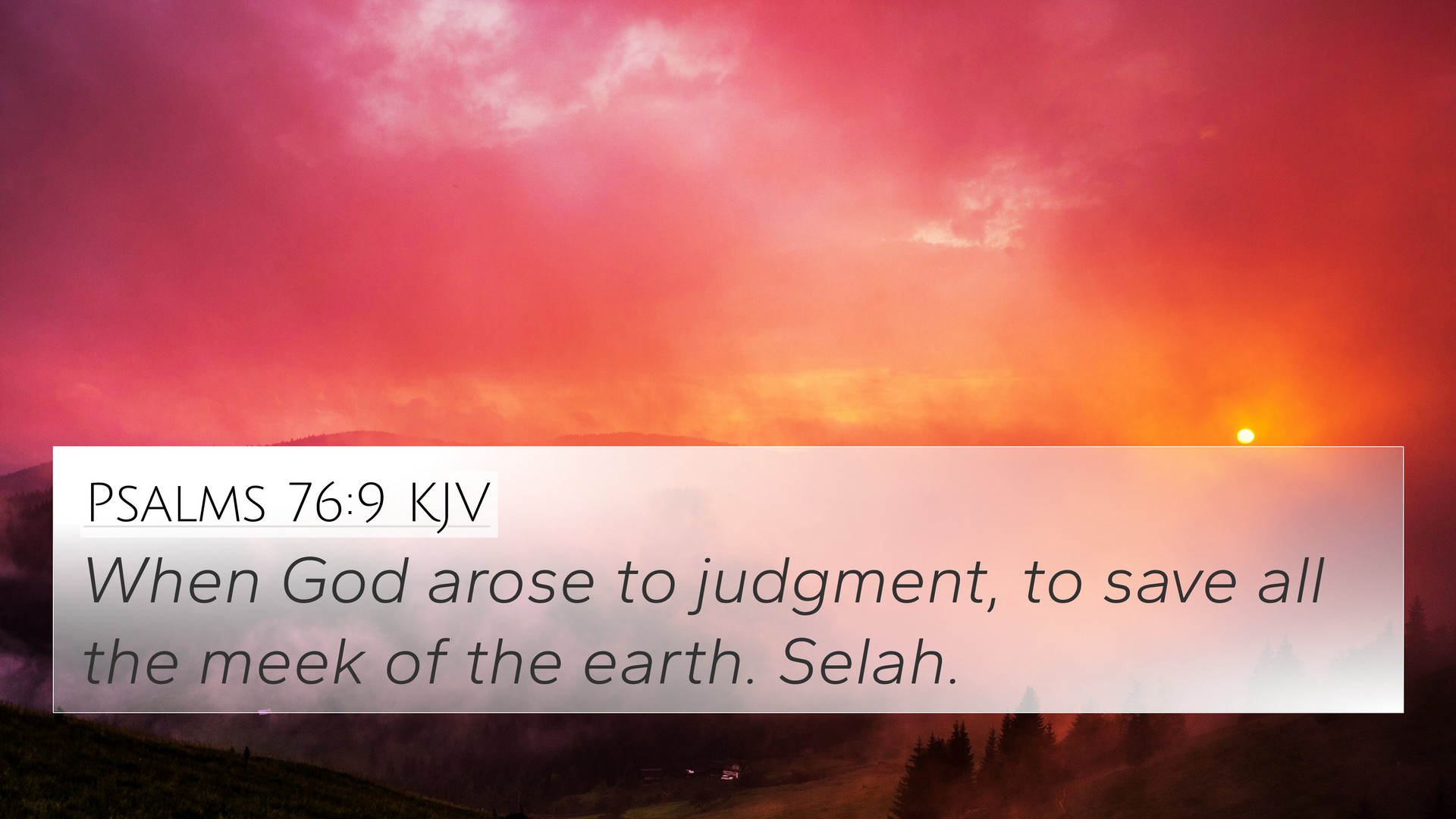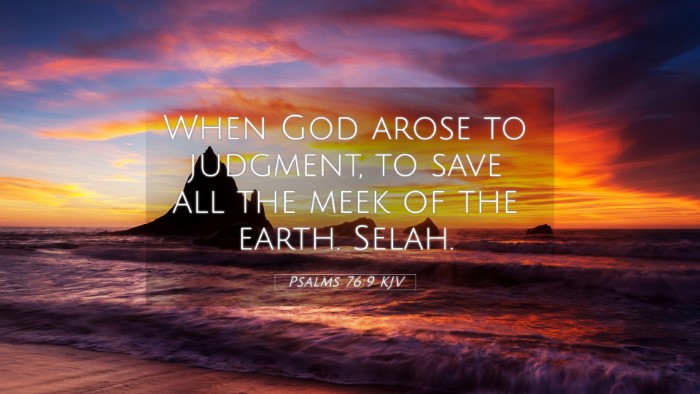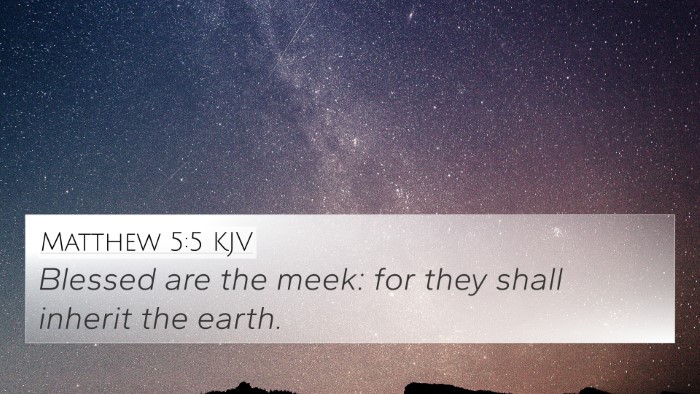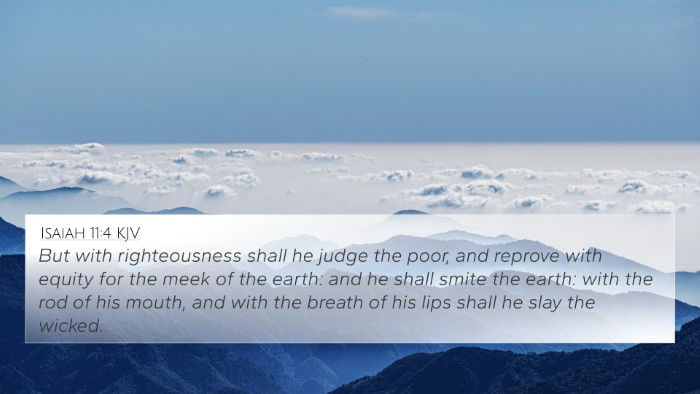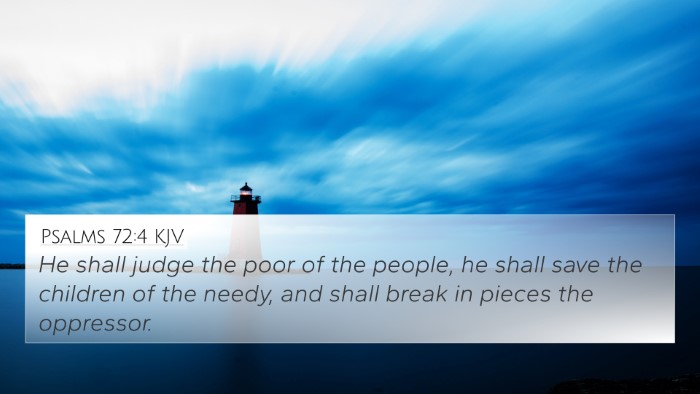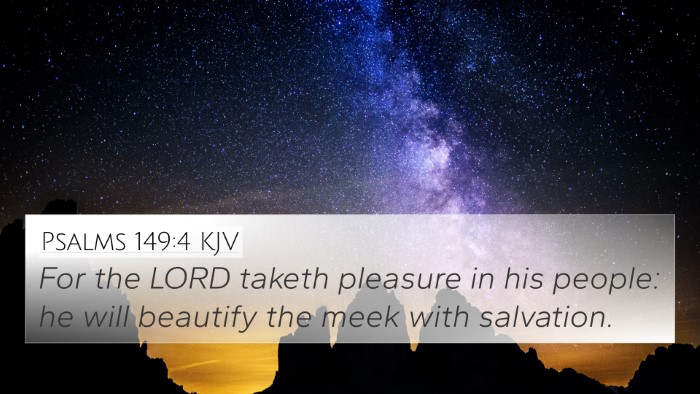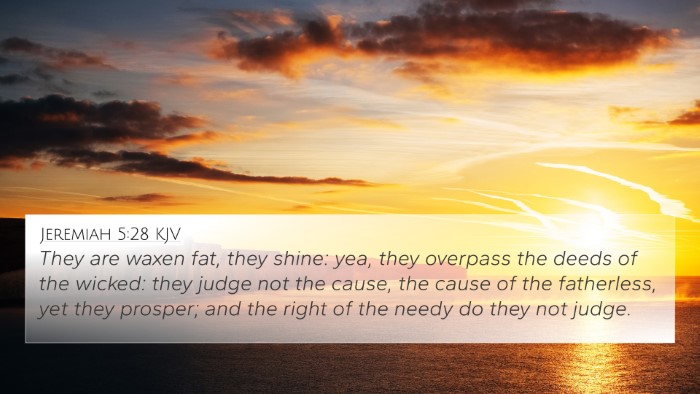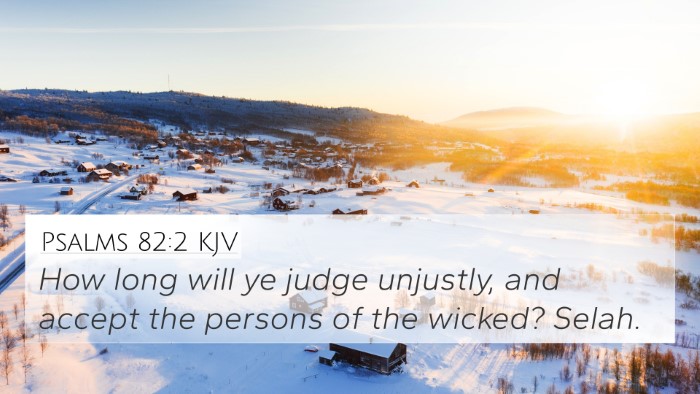Psalms 76:9 - Meaning and Interpretation
Psalms 76:9 states: "When God arose to judgment, to save all the meek of the earth." This verse encapsulates a profound theological truth about God’s role as a judge and savior, particularly for the meek and humble.
Commentary Insights
Matthew Henry emphasizes that this verse speaks of God’s righteous judgment and His intervention in history to deliver the oppressed. He underscores the dual aspect of divine judgment: it serves both to punish the wicked and to save the meek. In Henry's view, the “meek” are those who are humble before God, and they are assured of His protection and salvation.
Albert Barnes elaborates on the idea of God arising to judgment. He interprets this as a sign of God's active involvement in human affairs, particularly during times of injustice. Barnes notes that this judgment is not arbitrary but is a response to the plight of the meek. It affirms God's promise to defend those who trust in Him and look to Him for refuge.
Adam Clarke provides a more detailed historical context, suggesting that this verse may reflect God’s judgment against oppressors within Israel’s history. Clarke indicates that the theme of God's deliverance is central, illustrating that God’s judgments are a means for the restoration of justice, emphasizing that the meek will ultimately find vindication.
Cross-References for Psalms 76:9
This verse can be linked to several other scriptures that reinforce its themes:
- Matthew 5:5: "Blessed are the meek, for they shall inherit the earth." - This verse reinforces the promise of reward for the meek.
- Isaiah 61:1: "The Spirit of the Lord is upon me; He has anointed me to bring good news to the poor…" - God’s mission includes the deliverance of the oppressed.
- James 4:6: "God opposes the proud but gives grace to the humble." - A clear connection to the idea of God’s favor towards the meek.
- Psalm 37:11: "But the meek shall inherit the earth, and shall delight themselves in the abundance of peace." - This further emphasizes God's promise for the meek.
- 2 Corinthians 1:10: "He who delivered us from such a deadly peril will deliver us again." - This showcases God's faithfulness in saving His people.
- 1 Peter 5:6-7: "Humble yourselves, therefore, under God's mighty hand, that he may lift you up in due time." - This reflects the principle of God exalting the humble.
- Proverbs 22:4: "The reward for humility and fear of the Lord is riches and honor and life." - This connects the theme of humility with divine blessings.
Thematic Connections
The themes found in Psalms 76:9 resonate throughout both the Old and New Testaments:
- Justice and Mercy: God's judgment serves a dual purpose of executing justice while showing mercy to the meek.
- Divine Protection: The assurance that God defends those who are vulnerable and humble.
- Restoration: The recurring biblical motif of God restoring the fortunes of those who trust in Him.
Interpretation Through Cross-Referencing
Understanding Psalms 76:9 can be enriched through cross-referencing:
- Connecting with the New Testament revelations of meekness and God's justice.
- Exploring how this verse reflects God’s promises laid out in the prophetic writings.
- Identifying the role of Christ as the ultimate facilitator of God’s judgment and mercy.
Conclusion
The verse Psalms 76:9 encapsulates God's character as a righteous judge and a savior to the meek. Through careful cross-referencing and thematic analysis, one can uncover the rich tapestry of Biblical truth that emphasizes humility, justice, and divine deliverance. The insights drawn from public domain commentaries like those of Matthew Henry, Albert Barnes, and Adam Clarke deepen our understanding of the interconnectedness of scripture and reveal the heart of God for His people.
